"Working with digital and open educational resources requires a culture change"
How can digital and open educational resources shape the future of educational institutions? And what is needed to achieve this? In this article, two board members share their views and an open science expert provides insight into the benefits as well as areas of concern of these innovative educational resources.
"The use of digital and open educational resources works both ways," according to Daniël Wigboldus, chairman of the Radboud University's Board of Governors and professor of social psychology. "You need both enthusiastic lecturers who actively engage with this, and board members who encourage this development and set the frameworks."
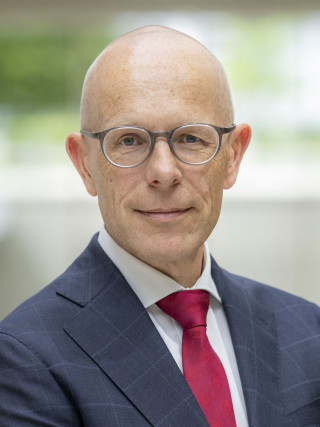
Daniël Wigboldus (Radboud University Nijmegen)
Digital and open educational resources are resources that are available online and can be used and adapted by anyone. The open nature means that authors allow others to use, edit and share their work.
"Because you improve each other's work, this development also leads to higher quality teaching materials," he continues. The materials range from teaching modules and e-books to videos and interactive tools.
Taking control yourself
Despite the many advantages of digital and open educational resources, there are also areas that require attention. For example, ensuring that educational institutions remain in charge themselves, rather than publishers and other commercial parties. And making sure that both self-developed and purchased educational resources are findable, accessible, exchangeable and reusable.
"If you don't have a plan, others are going to figure it out for you."
Ron Dekker works at Npuls and is responsible for governance within the Digital Learning Resources. "The most important question we need to ask ourselves when it comes to the importance and urgency of open and digital educational resources is: who owns the education? The worst-case scenario is that publishers will determine the content of our education and teaching methods. Therefore, educational institutions must take the lead themselves."
Making agreements with suppliers
Dekker's main task is to arrive at an agreement system in which educational institutions agree with suppliers on easy, safe and reliable access to, and use of, digital educational resources.
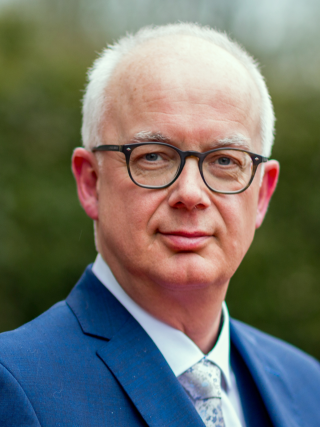
Ron Dekker (Npuls)
He points to the importance of public values: how do we safeguard autonomy, justice and humanity in a world of increasing digitalisation and dependence on suppliers? Dekker sees an important role for board members in this regard.
"If you don't have a plan, others will invent it for you. It is therefore essential to develop a vision and corresponding policy. Board members should therefore make digital and open educational resources important in their organisation. This also includes creating accompanying policies: what can an educational institution do to reinforce the desired effect? I am thinking, for example, of facilitating lecturers to create and exchange educational materials themselves."
Evaluation of Open and Online Higher Education Incentive Scheme
Developing and sharing open educational resources and improving the quality of online education were two objectives of the Open and Online Higher Education Incentive Scheme 2015-2022 by the Ministry of Education, Culture and Science, implemented by SURF. Over eight years, it worked to build collections of open and online educational resources, gain experience and encourage collaboration.
The scheme has been evaluated, Some insights are that the scheme has improved the quality of online education, and that open educational resources have been developed successfully. Sharing and reusing them still requires additional attention. For this, collaboration with libraries and publishers is crucial. And to ensure take up active support and institutionalisation by institutions is essential! This is a focus for board members.
The evaluation, prepared by social issues agency Andersson Elffers Felix (AEF) on behalf of the Ministry of Education, Culture and Science, will be available soon. When it is published, we will share the document here.
Dekker says that an important step has already been taken with the declaration of the National Approach to Digital and Open Educational Resources, signed by the Association of Universities of Applied Sciences, Universities of the Netherlands and SURF. In this declaration, Dutch higher education institutions agree to work together to create, share, reuse and procure educational resources. "The next step is to start putting those agreements into practice," he said.
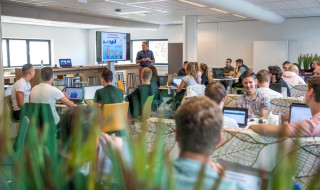
Photo: Angeline Swinkels for Avans
Growing towards maturity
Wigboldus advocates the use of digital and open educational resources. He was also one of the participants in the Koersteam of the Acceleration Plan for Education Innovation with IT. "What comes about with public money should also be widely shared," he believes.
Radboud University is one of the educational institutions participating in Npuls' new OpenUp scheme. The aim of this scheme is to gain more control over the use of digital and open educational resources together with senior secondary vocational, higher vocational and academic institutions.
"Actually starting to use digital and open educational resources doesn't happen overnight, but rather we're in it for the long haul."
The scheme gives educational institutions the opportunity to get started on vision and policy, systems and platforms, awareness and implementation. SURF supports participating institutions in commissioning services for digital educational resources.
"We have put a lot of time and energy into making edusources available and now we need to grow further towards maturity. Indeed, the goal is not just to develop digital and open educational resources, but to actually use them. And that doesn't happen overnight, but rather we're in it for the long haul," says Wigboldus.
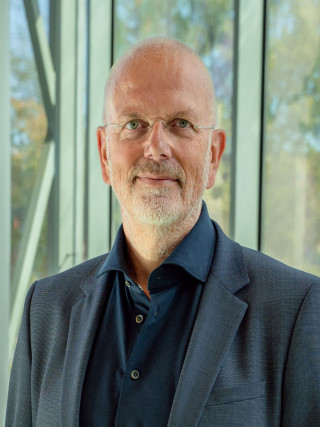
Jan Bogerd (Avans)
Increasing equity
Avans University of applied sciences also participates in OpenUp. Jan Bogerd is a board member and a strong advocate of digital and open educational resources.
"I did my studies part-time because it suited my personal circumstances best. That is why I welcome this development so much: digital and open educational resources enable more customisation and are inextricably linked to increasing equal opportunities. Education is thus no longer one size fits all," he explains.
Bogerd thinks that as a result of this development, the role of an educational institution will change. "The emphasis will be on guiding students and testing knowledge," he predicts. "The content itself will be created in cooperation with colleagues within and between institutions. I already see the latter happening - professionals know how to find each other better more easily. All this makes lecturers a kind of navigator, a development we as board members should support."
"Professionals know how to find each other more easily. All this makes lecturers become navigators of sorts, a development we as board members should support."
Still, Bogerd does not expect the learning process to become completely digital. "It is important to also have live in-person contact with lecturers and fellow students, because you also learn from that. So as far as I'm concerned, it's not either-or, but both-and."
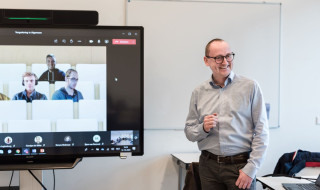
Photo Ilse Wolf for Avans
To make digital and open educational resources a success, Bogerd says it is important to put this development into a broader context and make it part of the education strategy. "We should not see it as an imposed change, but as a social mission," he says.
Wigboldus has to admit this is easier said than done: "Facilitating digital platforms is one thing, but ultimately a culture change is needed. I think it is time for more appreciation in education: lecturers who put energy into developing digital and open educational resources should be given time, space and recognition for it."
Text: Lyanneke Krauss
Header photo: Angeline Swinkels for Avans

